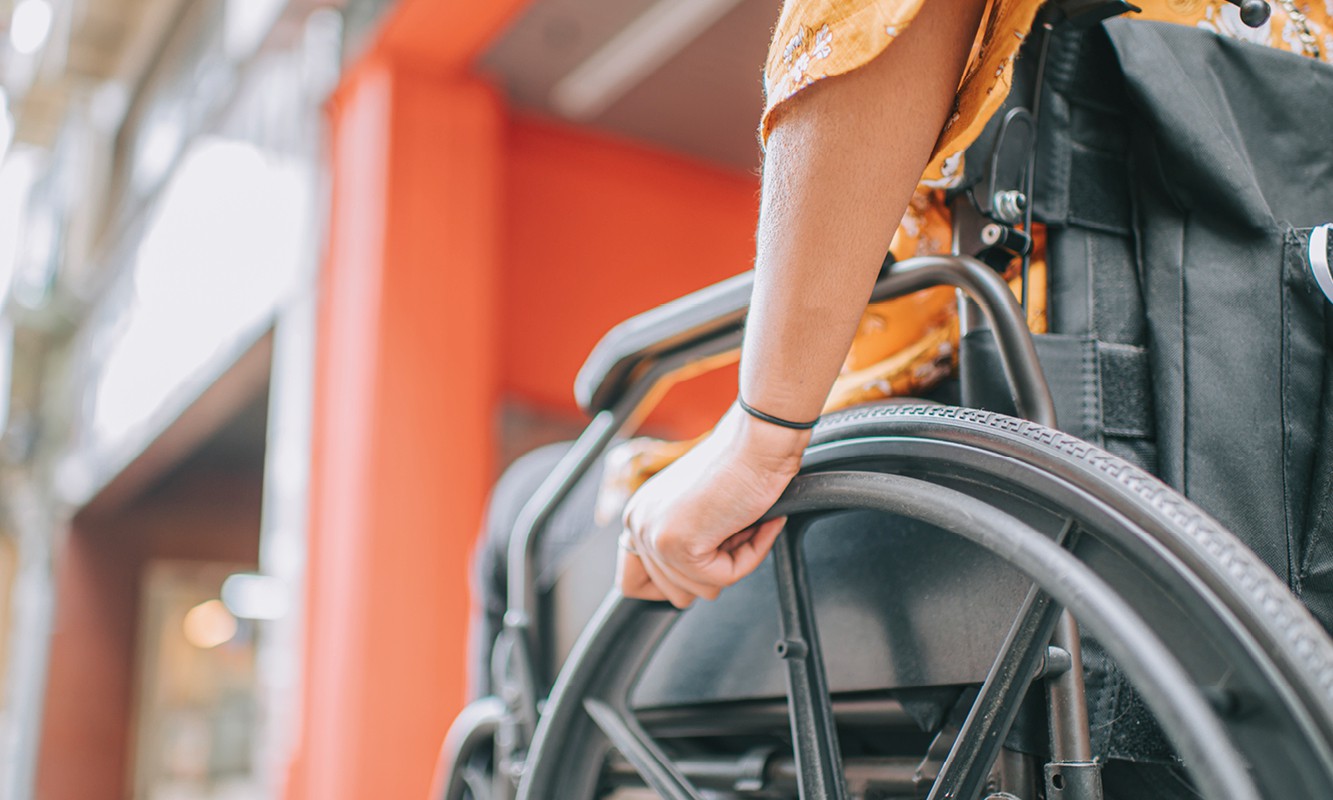Non-disabled people, we need to talk. Not all of you? Ok, here’s a quick test.
A few weeks ago, after doing the weekend grocery shopping using my wheelchair, I was sitting in the boot of my car folding the wheelchair and attaching it to the hoist that lifts it into the boot. Suddenly I heard a booming voice call out “You’re simply amazing!”
I looked around, startled, and the voice repeated “You! You’re simply amazing!”
When I gave a non-committal reply, the voice assured me that she meant it “in the best possible way”.
If you cringed when reading this, feel free to continue scrolling through. If you thought it was a heart-warming, feelgood story – this article is for you.
The reason for my non-committal response was because I was instantly weighing up whether I had the appetite for a confrontation on a pleasant Sunday morning, or just wanted the voice to go away.
I chose the conflict-avoidance option, instead of the better but infinitely more tiring option of using this as a teaching moment – to ask her to put into words what exactly was so amazing about me doing the grocery shopping. It was my family’s version of ordinary weekend grocery shopping: I raced around Woolworths at speed, flinging items into the trolley while my husband tried to make sure the trolley was well placed to catch them and got the items that were too high for me to reach. He then loaded the bags into the car while I folded the wheelchair.
The problem, and the reason why this is not a feelgood tale, is this: the voice genuinely believed that it would make my day to hear her praise, and when I didn’t respond with the expected enthusiasm she persisted, in case I had misunderstood her intention. No, I understood perfectly.
There are many roles in my life where it would be heart-warming to receive such praise (lawyer, business owner, educator, advocate for accessibility and inclusion, parent, step-parent, baker, perhaps even writer of articles). What I did not want or need to hear was praise simply for shopping while disabled, for existing while disabled, for going out in public while disabled.
There is a wider issue here, and one which brings that incident firmly into the world of work.
A couple of weeks after this incident I encountered a situation at a workplace where I am a member of staff and where I use my wheelchair to get around. Someone experienced a medical incident. I entered the scene, with the authority of a member of staff with a duty of care and of someone with first aid training, and I cautioned against a particular course of action which had been proposed by one of the onlookers. I was completely ignored, and the onlooker’s instructions were followed.
Only then did I begin to see myself the way those around saw me in that moment – as a woman in a wheelchair. Their unconscious bias immediately dismissed the possibility that I could be a staff member or that I could have any knowledge or training in first aid. As far as I know, there was no adverse outcome – but I am disturbed by the possibility of what might have been, all because of assumptions made about the capability of a woman in a wheelchair.
I thought a partial solution to that issue might be to prominently wear my staff ID, so I bought a lanyard so I could wear it when in that workplace.
The following week I was in the lift well, waiting for a lift – in one of those buildings where you select your floor from a panel in the lift well, and an automated voice tells you which lift to take. The only difference between me and anyone else was that I was sitting in my wheelchair, not standing and waiting.
Still, someone approached me to ask, in the saccharine voice used for children and small animals, if I needed help. “No thanks”, I said, “I’m just waiting for the lift”. Still she persisted, asking whether I knew which lift I needed. She was just starting to explain the system for selecting your floor when my lift arrived, and I was able to call out a cheerful “Yes, this one, bye” as I shot into the lift. I may have bounced off the back wall of the lift, such was my speed, but there was nobody else in the lift so I got away with it. The irony, of course, was that I was prominently wearing my staff ID.
I wonder if the shop would take the lanyard back?
For the avoidance of doubt, offers of help are fine, and even welcomed, when they are made in an appropriate situation and on an appropriate level. Assuming someone needs help when they are looking comfortable with the situation; talking down to them; and refusing to take NO for an answer, is not ok.
For many years I tried to hide or minimise my mobility issues in my professional life because I was concerned about how other people would perceive me. Now that I cannot and will not hide, I see that those concerns were in many ways justified. I genuinely believe that people who know me see me the way I see myself, but as far as strangers are concerned, there is a yawning chasm between how I see myself and how they view me.
So, we need to talk about what you see when you look at a person using a wheelchair, a mobility aid, a white cane, or a guide dog. What assumptions do you make? Do you see someone like yourself, or do you see someone who needs to be praised for doing the bare minimum?
The reality is that you will from time to time see people whose greatest achievement that day was getting out in public and carrying out mundane tasks, but in most cases you won’t even know it. Most of them will not be visibly disabled – they may have unseen disabilities or depression or grief.
Why do you leap to the assumption that a person using a wheelchair must be in need of your praise, your pity or your help? And if you are thinking that way, what assumptions will you be making when you encounter that person at work, in a job interview, or even as your lawyer?
Fiona Yeang is the Principal at Yeang Lawyers and a member of the QLS Diverse Abilities Network.









Share this article